- Home
- Sherryl Woods
A Small Town Love Story--Colonial Beach, Virginia Page 7
A Small Town Love Story--Colonial Beach, Virginia Read online
Page 7
Eleanor “Ellie” Mae Crary Caruthers is quick to distinguish Doc’s Motor Court from the motels that have proliferated all over the United States for the past half century or more. As the caretaker of this quaint Colonial Beach piece of history and all its stories, she wants to make sure that visitors understand the difference, not that it’s hard to spot.
Two short rows of single-story, white structures face each other at a slight angle across a courtyard reserved for guests to park their cars right in front of their rooms. On many a summer day guests could be found lined up in old-fashioned, brightly colored metal chairs on the narrow stoops outside their doors or at the edge of the property with its stunning view of this miles-wide stretch of the Potomac River just before it flows into the Chesapeake Bay. A clothesline is strung between posts for hanging damp beach towels and bathing suits, adding to the oddly homey atmosphere.
Doc’s parents, Dr. and Mrs. Veola Caruthers
Families gathered at the end of the day to talk, wet bathing suits were hung out to dry and, on the Fourth of July, way back in the day before the town set off fireworks on the nearby Town Pier, guests would get a permit from the town and shoot off their own. Once one of the returning families had done it, others insisted on doing it too, creating increasingly lavish displays on the annual holiday. Guests were even frontrow witnesses on the night the town’s fireworks started a fire and a town fire truck drove onto the pier to put out the blaze and crashed right through into the river.
Ellie remembers it all, every detail about those first fireworks, every request made by the regulars, which rooms they liked and even stories they told. She talks about the Potomac River Festival parades passing by and more recently the congestion caused by a change in the traffic pattern. She finds it all endlessly fascinating.
But unlike her husband, who saw the need for such a place in this small but busy little resort town nestled on the shores of the Potomac halfway between Washington, DC, and Richmond, Ellie had never intended to live such a life in such a place.
Born in 1927 at Vanderbilt Hospital in Asheville, North Carolina, the daughter of a brick mason, she discovered at an early age just how tough life could be. In 1934 the banks went broke and her father lost everything—his business, their home, their belongings. With help from Franklin Delano Roosevelt’s WPA program, the family moved to the nation’s capital where her father found work.
Doc Caruthers on left
“They called them the Greatest Generation,” she says, her tone wry. “It wasn’t because they were something special. It was because they were tough. They managed to live through those hard times.”
For a time her father did whatever he could to support his family, digging ditches before finding work once again as a brick mason and then eventually starting his own business. He obtained government contracts, worked on monuments and did some of the brick work at Georgetown University, she recalls with pride.
Ellie worked hard, too, commuting to a distant high school to complete her education, then going to nursing school and getting a job at Gallinger Hospital, which later became DC General, and after that a residence for the homeless. The first time she had a vacation coming to her, she talked about it with her dad. They wanted to celebrate by doing something different, going someplace they’d never been before after years of visiting nearby Maryland and Delaware beaches. Her dad had been working at the Dahlgren Naval Surface Warfare Center just outside of Colonial Beach, so they chose Colonial Beach for their holiday.
“We rented a cottage up on Twelfth Street from the undertaker,” Ellie recalls. Her dad rented bicycles for her and her sister so they could ride along the waterfront into town to the main beach. It was there that she met Doc Caruthers in 1949. He was the son of the local doctor and had already opened the motor court, which operated from late spring through early fall, about four months of the year.
Ellie and Doc outside the motor court
What amounted to a long-distance courtship wasn’t easy back then. Doc would only rarely ask to use his father’s phone to call. “We wrote letters. As you can imagine, I wrote epistles,” she says, a laughing reference to her habit of spinning a story infused with details. “Doc would write back, ‘I might be able to get up there Tuesday night.’”
The office of Doc’s Motor Court
When Doc first proposed, Ellie was having none of it. She wasn’t about to marry someone who only worked four months out of the year. “I had a real job. I told him he needed to find one, too.”
Through an uncle who worked at the naval base and a navy veteran himself, Doc was about to line up a job there as a plumber. “He was a real good plumber,” Ellie recalls. “And he dressed nice.”
A chance encounter on the base moved him in an entirely different direction, toward those newfangled things called computers. The big ones new to the base. Doc had no idea what a computer was.
“What’s that?” he reportedly asked the friend, John Blue.
Blue described it as a fancy typewriter. Doc apparently nodded and told him, “Oh, I like typewriters and adding machines.” To Doc, Ellie says, “It was all fun and games. He loved gadgets.”
In fact, his love of gadgets could be a bone of contention between them from time to time. “He’d drive me insane,” Ellie says with the affectionate tolerance of a beleaguered wife who knew her husband’s faults all too well. For ten years, they lived in a couple of rooms behind the office at the motor court. They then moved into the Sears, Roebuck house that Doc’s mother and father had built in 1937.
During those years, Doc was always looking to buy this gadget or that, to try building some boat he’d found the plans for. Ellie was the voice of reason, warning when they couldn’t afford something or had nowhere to put it, but more often than not, she got caught up in Doc’s latest enthusiasm.
“Doc was a boat-building nut,” she says affectionately. “The first ones sank.”
She recalls vividly his discovery of the recipe for making a “flotation kit,” and it came with some boat kit that Doc wanted to assemble. They filled boxes and coffee cans with the mixture, according to the directions. “They started swelling up till they looked like loaves of bread.” Some of those ended up with a local waterman, Henry Parker, to float his crab pots. Some of it was used to build a kayak that couldn’t be sunk. Their two adopted children—Sarah and Mark—along with their friends, did their best to try, but they couldn’t sink that kayak.
Doc even got the plans for a Mediterranean caïque from Popular Mechanics magazine, just because the look of it fascinated him. He built a twenty-three-foot cabin cruiser from a kit. It took him years to build it and required fiberglass to make it seaworthy. Once it was done, he took it up to Washington and sold it. The smell of that fiberglass caulking made them both “drunk as a skunk,” Ellie recalls with a chuckle.
While Doc learned everything he could about computers at his job on the base and, then, at home, Ellie ran the motor court. Initially she thought she’d run it for those four months of the year as Doc had, then work in the nursing profession in nearby Fredericksburg the rest of the year. The administrators at the hospital there weren’t enthused about having a nurse who was taking such a long vacation every year. “They laughed me right out the door.”
One of Doc’s handmade boats
When a new doctor arrived at the beach, though, he was happy to have Ellie working for him. And even after he retired, she kept his records in case the patients ever needed them. When they’d gone unclaimed for years, she asked what she ought to do with them. Told they needed to be destroyed, she had a fire and burned them to protect the patients’ privacy. And, as a legacy from her father-in-law, she still has some of the big old jars of medicine from which he’d dispense prescriptions to his patients.
One of Doc’s handmade boats
Doc on left and Ellie on right
While nursing was the profession she’d trained for, Ellie was a natural at running the motor court. Even on the day of the intervi
ew, with Doc’s closed now for a couple of years, she was getting calls from old customers. Some were just checking on her. One, Chet, checks in regularly. He was eight years old the first time he came with his parents. “He’s in his seventies now,” Ellie says.
Others want to reminisce about a place that had been so important to them or their family. One who called that day told her he was over by the motor court and asked if she had a little time. “I’d like to talk about my dad.”
Of course, Ellie remembered him and hurried right over. “He was from West Virginia,” she recalled. “And he raised minks. I thought that was so interesting.” Her eyes sparkled at the memory.
On one of his visits the father had noticed that the small perch—a sweet, if bone-filled, fish caught in the Potomac—were being tossed aside at the end of the day. “After that, he sent over a truck and took those fish home to feed his minks.”
Another vivid memory of another guest comes to mind. The man checked in, but when checkout time came, he hadn’t left and wasn’t answering his door. Ellie used her key, entered his room and found him unconscious. She recognized his symptoms as an overdose, called for help and got him to a hospital in time to save his life.
Another guest told her he’d like to be buried under the ginko tree in the motor court’s courtyard.
Then there was Julius, a baker from Washington, who came every year and often brought baked goods with him. He and his family loved their annual visits, and Ellie automatically reserved their same room for them at the beginning of the summer season, whether they’d called yet or not. Then one year his wife called to cancel. She told Ellie her husband had been very sick.
The next year Ellie didn’t record their reservation in advance. At the last minute the wife called to see if there was any way to get their usual room on such short notice. Ellie went to the person already staying in that room, explained the situation and, just as most people jump to do Ellie’s bidding, the guest gave up the room.
The family arrived and the husband was full of stories about all he’d noticed coming into town, the memories he had of all the vacations spent here.
Ellie left their room and was halfway across the courtyard when the son came to get her. “You need to call for help. Dad’s died.”
Julius had accomplished what he’d wanted. He’d come to the place he considered home to die.
Ellie has countless stories like that, of people who considered Doc’s home and her a beloved part of their family. It’s not at all hard to understand, but it is rare, and she knows it. Part of it may have to do with the lure of this small seaside town, but a lot has to do with Ellie herself.
“Nursing made her a good listener,” one friend commented.
It’s more than that, though. It’s the deep affection she clearly holds for Doc, for Colonial Beach, for the life she’s led and for the people who’ve enriched her days with their own stories.
“I think that’s so interesting,” she says time and again of what she’s learned from her guests and from living.
There’s a lesson in that, perhaps. That as long as you’re living and listening and learning, life is full. Ellie, ninety now and still active even without the demands of the motor court, would most certainly declare that hers is.
Ellie at her 90th birthday party
BY THE SEA, BY THE SEA…
Whether it’s because of my birth sign—Cancer—or for some other reason, I am happiest when I’m by the water. Big bodies of water. It doesn’t matter if it’s the wide sweep of the Potomac River in Colonial Beach just above where it empties into the Chesapeake Bay or the vastness of the ocean; the sea soothes my soul.
Jack Boykin, Colonial Beach ski club
Colonial Beach ski club
I lived for many years in Columbus, Ohio, and grumbled mightily about the lack of water. Rivers were proudly pointed out to me—the Scioto, the Olentangy. I always shook my head. “Nope, those are creeks.”
And yet despite that fondness for walking along the shore, for sitting on my porch with its view of the river or on my balcony in Florida with its view of the Atlantic, I’m a little less enthused about being on or especially in the water.
Despite having a mom who was a competitive swimmer back in the day, despite plenty of swimming lessons over the years, I am a terrible, terrible swimmer. I do all the right strokes—back stroke, side stroke, breast stroke. I stay afloat…for a time. But I forget to breathe. That is not a good trait when in a wide expanse of deep water.
My parents were well aware of my lack of skill. As a teen, I was forbidden from joining my friends at the beach when they built a questionably watertight rowboat or engaged in impromptu waterskiing competitions on the river. For once I didn’t argue.
Therefore a few years back when I was asked to be the grand marshal of the Potomac River Festival boat parade, I asked with a great deal of hope, “Can I do it from land?” Sadly, they assured me that wasn’t an option.
So, with the help and encouragement of several courtly men, I boarded a lovely boat, planted myself very securely in a seat in the stern of the boat and sat there for a couple of hours, waving dutifully to those on shore and aboard the many decorated boats, and watching nervously for even a hint of rough seas. As honored as I was, as kind as everyone was, it was the longest couple of hours of my life.
In Colonial Beach, being on or in the water is a way of life for many residents. Though it’s a slowly dying existence, there are still watermen in town who make their living crabbing or fishing. There are very few oystermen left because of the dwindling supplies in the river and the nearby Chesapeake. Curley’s Oyster Packing Plant, which once employed several dozen shuckers and shipped out truckloads of oysters in fancy tins that are now highly collectible, has shuttered its doors. The Big Dipper, once a charter fishing boat and tourist boat, is now in private hands. And while Clarence Stanford’s Marine Railway is now called the Boathouse Marina and still offers docking facilities and boat repair, it’s no longer in the boat-building business.
And, yet, this town still has its share of pleasure boats and marinas, which contribute greatly to the local economy. According to an estimate by Bill Bowman, who owns the Boathouse Marina, the various marinas in town—including the Colonial Beach Yacht Center and the Curleys’ Monroe Bay Marina—provide some six hundred slips, about two-thirds of which are leased out on an ongoing basis. The rest are leased to summer boaters who find Colonial Beach an accessible and desirable port between Washington and the Chesapeake Bay.
Colonial Beach ski club
He estimates that those who own these docking facilities have in the neighborhood of ten million dollars in capital investments in their operations. Add in what boaters spend on service, equipment, groceries and so on while visiting Colonial Beach or staying on their boats, he calculates that’s another two million dollars contributed annually to the local economy.
“Colonial Beach was once a place for old boats to go to die,” he says. Now the boats coming to the beach can range anywhere from one hundred thousand dollars on the low end to one that’s worth three-quarters of a million dollars. He, among other marina owners, including Kyle Shick of the Colonial Beach Yacht Center, fought a boat tax that the town once levied, arguing that boaters already contribute greatly to the economy. The added personal property tax for docking in local waters on a permanent basis would only send them fleeing to a more welcoming, less costly port. Many of the marinas, including Bill’s, suffered severe damage in a freak storm in spring 2017, but quickly worked to repair slips and buildings to be ready for the summer season.
But while pleasure boating has taken its place at the forefront of businesses making a living from the area’s waters, the town still has families who recall a different time, when they earned their livelihoods on the water in a variety of unusual ways, from building sought-after boats to running fishing charters, from distributing seafood throughout the region to catching muskrats. A few still do.
Here are just a f
ew of the stories of those unique, colorful individuals. It’s a history as important to the town as the nearby birthplaces of George Washington, James Monroe and Robert E. Lee and just as memorable.
Jumping off the old diving board
A LIFE BUILT AROUND OYSTERS:
The Curleys
Few families in Colonial Beach are more identified with making a living from the nearby waters of the Potomac River and Chesapeake Bay than the Curleys.
Landon Curley, who founded the Curley Packing Company in 1932, “loved oysters,” says his son Rusty. “That was his thing. He’d see oyster boats lined up in the creek [Monroe Bay] and nothing looked any better to him.”
At one time the boats lined up in droves, side by side, so close together you could walk across the water by hopping from one deck to the next, Rusty and others recall about the heyday of oystering in the 1950s.
Monroe Bay Marina
A flag flying from a pole outside the packing plant suggested to the working watermen as they entered Monroe Bay the kind of prices they could get for their haul by bringing it to Curley’s, rather than other packers in town or elsewhere. And there, not only would they get top dollar, they’d find a welcoming place to spend an evening with good food, lively company and some competitive pool games.
“You couldn’t find a more colorful group of people,” Rusty recalls. “They might not have had the purest language, but they were good people. They had a respect for women.”
And the watermen came back season after season from Tangier Island and around the region because Landon Curley treated them right. Rusty still talks longingly of one who’d always bring some fig preserves made by his wife.
Sometimes the men would go home, leaving their boats docked at Curley’s as they visited family. They’d leave one man behind to make sure any water that seeped into the boats was promptly pumped out. “He used to say the sweetest sound he ever heard was of that pump sucking air,” Rusty recalls of the hard, laborious task.

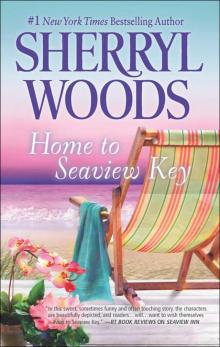 Home to Seaview Key
Home to Seaview Key Winter's Proposal
Winter's Proposal Winding River Reunion
Winding River Reunion Island Storms
Island Storms White Pines Summer
White Pines Summer The Heart of Hill Country
The Heart of Hill Country Dashing Through the Mall: Santa, BabyAssignment HumbugDeck the Halls
Dashing Through the Mall: Santa, BabyAssignment HumbugDeck the Halls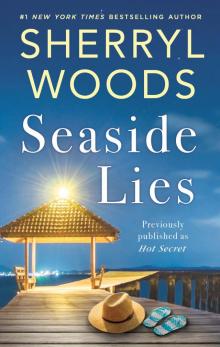 Seaside Lies
Seaside Lies One Last Chance
One Last Chance West Texas Nights
West Texas Nights Wildflower Ridge
Wildflower Ridge In Too Deep
In Too Deep Driftwood Cottage
Driftwood Cottage Heartland
Heartland Kate's Vow (Vows)
Kate's Vow (Vows)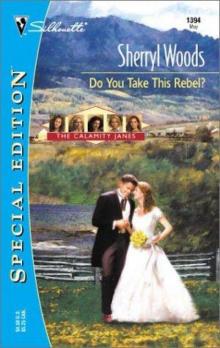 Do you take this rebel?
Do you take this rebel? Swan Point
Swan Point A Christmas Blessing
A Christmas Blessing Sweet Tea at Sunrise
Sweet Tea at Sunrise Safe Harbor: A Cold Creek Homecoming
Safe Harbor: A Cold Creek Homecoming Honor
Honor What's Cooking?
What's Cooking?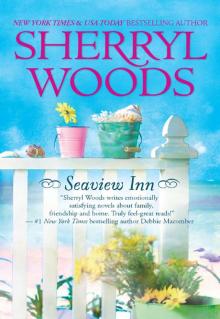 Seaview Inn
Seaview Inn The Cowboy and the New Year's Baby
The Cowboy and the New Year's Baby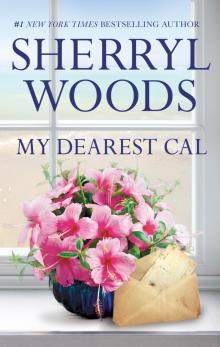 My Dearest Cal
My Dearest Cal The Calamity Janes
The Calamity Janes A Daring Vow (Vows)
A Daring Vow (Vows) Isn't It Rich?
Isn't It Rich? A Slice of Heaven
A Slice of Heaven Carolina Christmas
Carolina Christmas Love
Love Flamingo Diner
Flamingo Diner Courting the Enemy
Courting the Enemy Home at Rose Cottage
Home at Rose Cottage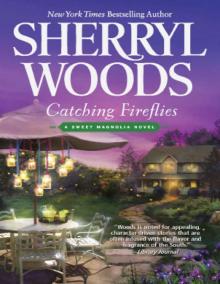 Catching Fireflies
Catching Fireflies Flowers on Main
Flowers on Main The Parson's Waiting
The Parson's Waiting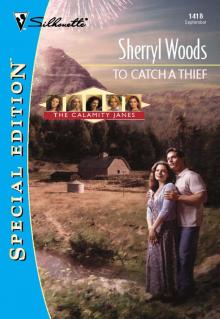 To Catch a Thief
To Catch a Thief Welcome to Serenity
Welcome to Serenity Daniel's Desire
Daniel's Desire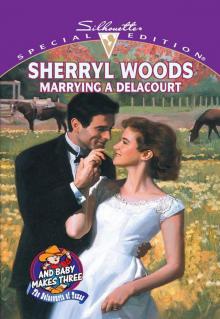 Marrying a Delacourt
Marrying a Delacourt After Tex
After Tex The Unclaimed Baby
The Unclaimed Baby A Chesapeake Shores Christmas
A Chesapeake Shores Christmas Destiny Unleashed
Destiny Unleashed Millionaires' Destinies
Millionaires' Destinies Mending Fences
Mending Fences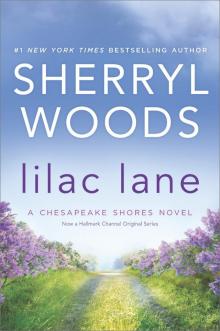 Lilac Lane
Lilac Lane Edge of Forever
Edge of Forever Natural Born Trouble
Natural Born Trouble Angel Mine
Angel Mine Dogwood Hill
Dogwood Hill Willow Brook Road
Willow Brook Road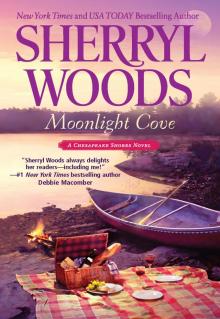 Moonlight Cove
Moonlight Cove A Vow to Love
A Vow to Love One Step Away: Once Upon a Proposal
One Step Away: Once Upon a Proposal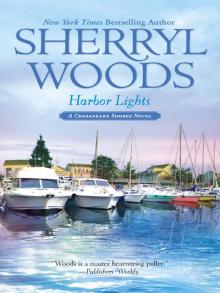 Harbor Lights
Harbor Lights The Cowboy and His Baby
The Cowboy and His Baby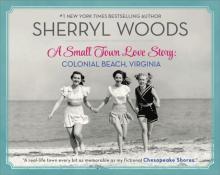 A Small Town Love Story--Colonial Beach, Virginia
A Small Town Love Story--Colonial Beach, Virginia Michael's Discovery
Michael's Discovery An O’Brien Family Christmas
An O’Brien Family Christmas The Laws of Attraction
The Laws of Attraction Yesterday's Love
Yesterday's Love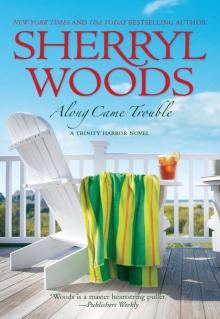 Along Came Trouble
Along Came Trouble Dream Mender
Dream Mender Waking Up in Charleston
Waking Up in Charleston The Christmas Bouquet
The Christmas Bouquet The Bridal Path: Danielle
The Bridal Path: Danielle Next Time...Forever
Next Time...Forever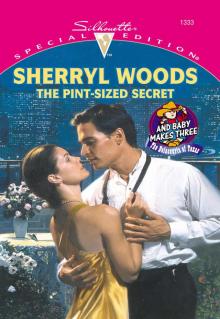 The Pint-Sized Secret
The Pint-Sized Secret Feels Like Family
Feels Like Family A Bridge to Dreams
A Bridge to Dreams The Summer Garden
The Summer Garden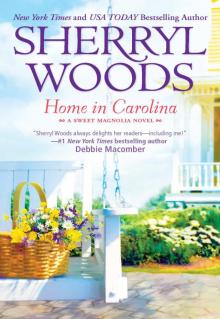 Home in Carolina
Home in Carolina Ryan's Place
Ryan's Place Flirting with Disaster
Flirting with Disaster Cherish
Cherish The Valentine Wedding Dress
The Valentine Wedding Dress More Than Words, Where Dreams Begin: Black Tie and PromisesSafely HomeDaffodils in Spring
More Than Words, Where Dreams Begin: Black Tie and PromisesSafely HomeDaffodils in Spring Natural Born Lawman
Natural Born Lawman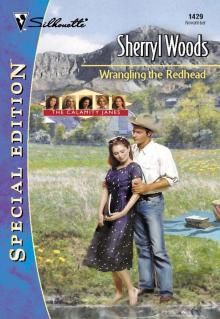 Wrangling the Redhead
Wrangling the Redhead Can't Say No
Can't Say No Where Azaleas Bloom
Where Azaleas Bloom Hot Property
Hot Property The Backup Plan
The Backup Plan Riley's Sleeping Beauty
Riley's Sleeping Beauty Hot Secret
Hot Secret Stealing Home
Stealing Home One Touch of Moondust
One Touch of Moondust Miss Liz's Passion
Miss Liz's Passion Hot Money
Hot Money Three Down the Aisle
Three Down the Aisle Tea and Destiny
Tea and Destiny The Rancher and His Unexpected Daughter
The Rancher and His Unexpected Daughter The Inn at Eagle Point
The Inn at Eagle Point Not at Eight, Darling
Not at Eight, Darling For the Love of Pete
For the Love of Pete Ask Anyone
Ask Anyone Finally a Bride
Finally a Bride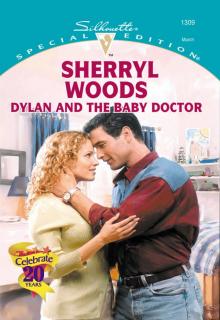 Dylan and the Baby Doctor
Dylan and the Baby Doctor The Bridal Path: Sara
The Bridal Path: Sara Treasured
Treasured Amazing Gracie
Amazing Gracie Beach Lane
Beach Lane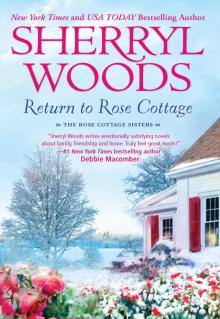 Return to Rose Cottage
Return to Rose Cottage Sean's Reckoning
Sean's Reckoning Joshua and the Cowgirl
Joshua and the Cowgirl Hot Schemes
Hot Schemes The Bridal Path: Ashley
The Bridal Path: Ashley A Love Beyond Words
A Love Beyond Words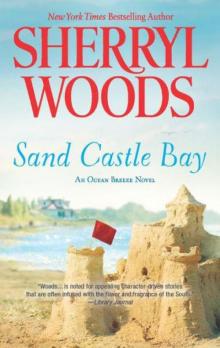 Sand Castle Bay
Sand Castle Bay Come Fly with Me
Come Fly with Me Honeysuckle Summer
Honeysuckle Summer The Delacourt Scandal
The Delacourt Scandal Patrick's Destiny
Patrick's Destiny About That Man
About That Man